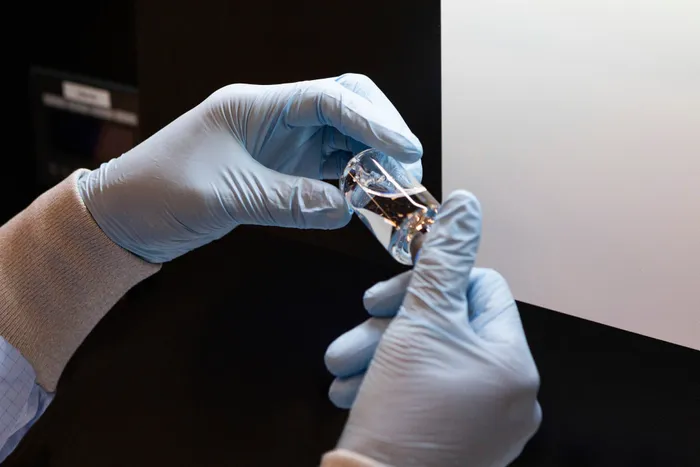
.
Image: Supplied / Gilead Sciences.
South Africa has become the first country in Africa to approve a long-acting injectable that could redefine how the world approaches HIV prevention.
The treatment, lenacapavir, developed by Gilead Sciences offers protection for up to six months with just two doses a year, marking a transformative shift from the daily-pill model that has dominated prevention efforts for decades.
Unlike existing oral pre-exposure prophylaxis (PrEP), lenacapavir is administered as a single subcutaneous initiation dose, followed by two oral tablets and a twice-yearly injection.
For individuals at risk of HIV infection, it promises both convenience and consistency, two long-standing challenges in global prevention programs.
The injectable is approved for adults and adolescents weighing at least 35 kilograms who are HIV-negative but at risk of infection. It is designed to be used alongside other preventive measures such as condom use and regular screening, reinforcing rather than replacing holistic prevention strategies.
Lenacapavir is the product of more than a decade of molecular design focused on one of HIV’s most elusive targets: the viral capsid, the cone-shaped protein shell that protects the virus’s genetic material.
Traditional antiretroviral therapies attack HIV at later stages of its replication cycle, once it has already entered human cells. Lenacapavir works differently. It’s the first-in-class “capsid inhibitor,” disrupting HIV’s ability to assemble, disassemble, and integrate into the host cell’s DNA.
In scientific terms, lenacapavir binds to multiple sites on the viral capsid protein, interfering with both early and late stages of the virus’s lifecycle. The result is a multi-phase blockade that prevents the virus from replicating effectively.
The molecule’s design also makes it stable. Its slow metabolic breakdown allows it to remain active in the body for months, making the twice-yearly dosing possible. This pharmacokinetic precision is the result of years of optimisation in structure-based drug design and polymer delivery technology.
Gilead’s scientists combined nanoparticle formulation techniques with a long-acting depot mechanism, which releases the drug gradually into the bloodstream over time. This delivery innovation is what transforms lenacapavir from a short-acting antiviral into a preventive shield that lasts for half a year with a single injection.
In short, lenacapavir doesn’t just suppress HIV; it represents a new mechanistic class of antivirals, designed for durability and real-world usability.
Beyond its scientific innovation, lenacapavir represents a breakthrough in how advanced therapies reach high-need populations.
South Africa’s regulatory agency, the South African Health Products Regulatory Authority (SAHPRA), leveraged an international approval pathway known as the European Medicines for All (EMA) procedure to accelerate the review process.
Cost has been a central focus from the outset. Through partnerships among Gilead, local manufacturers, and global health organisations such as the Bill & Melinda Gates Foundation, the price of lenacapavir is projected to be reduced from nearly R479,135 per year in high-income markets to roughly R684 per person per year in Africa, a 700-fold decrease.
This kind of collaboration between public agencies and private innovators points toward a sustainable model for delivering cutting-edge medicine in emerging markets, without relying solely on donor funding.
South Africa is also positioning itself to play a manufacturing role, rather than simply a distribution one.
Government is working with partners, including Hetero Drugs and regional pharmaceutical networks, to produce local and generic versions of lenacapavir, a step that could strengthen Africa’s broader biopharmaceutical ecosystem and reduce dependence on imports.
